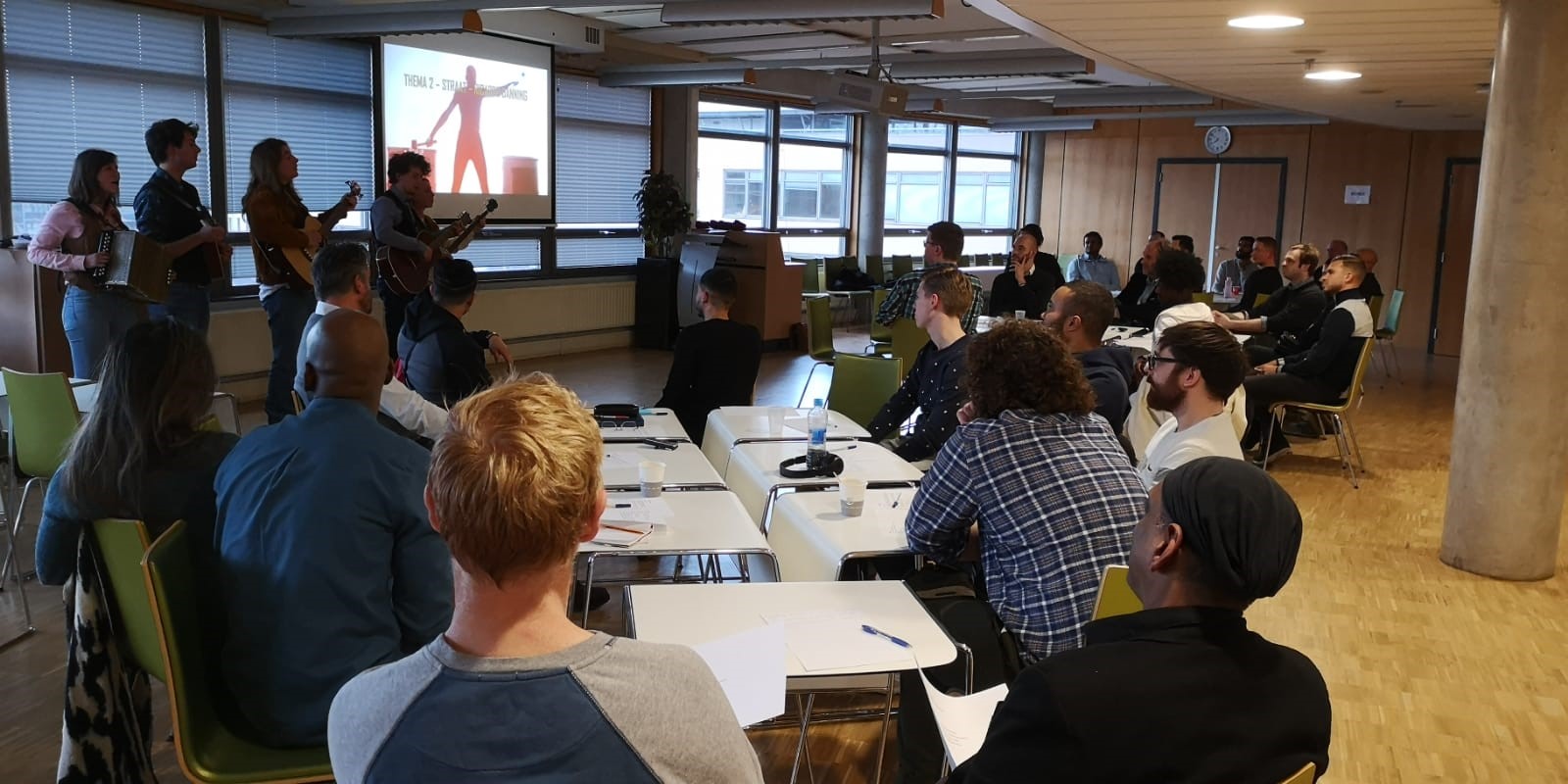Men at Work
‘We are having trouble recruiting young men and keeping them in the Social Work and Education degree programme.’ This has been an ongoing issue for several years and the research group was asked to help think of a...
Centre of Expertise Global and Inclusive Learning

‘We are having trouble recruiting young men and keeping them in the Social Work and Education degree programme.’ This has been an ongoing issue for several years and the research group was asked to help think of a solution. Instead of a top-down approach, the research group wanted to work bottom-up in a network-oriented manner and wondered who the initial experts would be to help think about the solution. Of course, these were the students themselves. Naturally, also the staff members — in education as well as other staff members, alumni and the professional field.
A meeting was organised in which students, alumni, lecturers, staff members, professionals and knowledge network members jointly discussed the themes which played a role in the decision of male students to discontinue their social work degree programme. This meeting was followed by a mixed session which further explored the question of what masculinity really is and how masculinity has an added value in the degree programme and in the professional field. It thus became a gender issue in which identity, stigma, social support, and inclusion and exclusion are important themes.
What started with a simple question has now contributed to several pathways; the first result was an adjustment to the curriculum which, in addition to the care and support aspects of the profession, now also focusses on the management aspects. These aspects are developed with partners. These partners come from both The Hague University of Applied Sciences (for example, the degree programmes of Integral Safety Sciences, Nursing, Pedagogy, PABO, etc.) and from the professional field (such as the police, the prison system, street work, etc.). A second outcome was that a student used the data from these findings for a bachelor thesis. A third result is the preparation of an article on this issue and, finally, people in the workplace are being made aware of these kinds of processes and possible solutions.
This project shows how a seemingly simple question can have far-reaching outcomes, but also how important it is to start by appreciating the knowledge and expertise close to home.